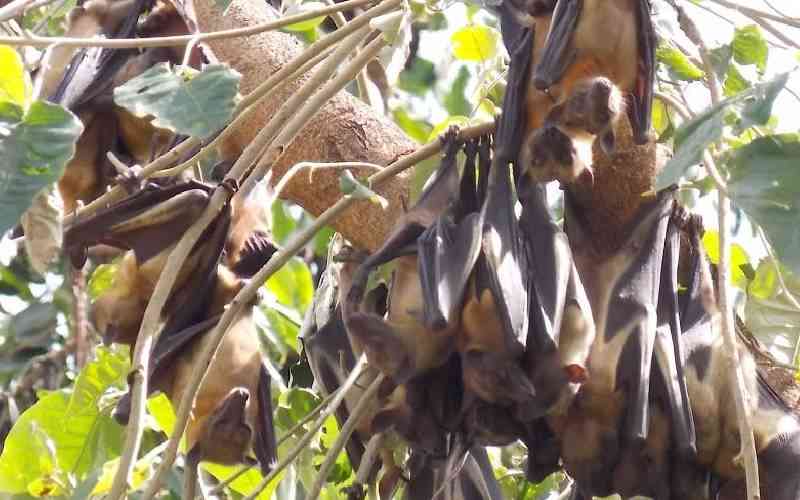×
The Standard e-Paper
Home To Bold Columnists

Bats on a tree at the home of Elijah Lugali Ayida at Lodenyo village in Vihiga County on October 15, 2023. [Benjamin Sakwa, Standard]
The putrid smell permeates the home of 73-year-old Elijah Ayida in Lodenyo village, Vihiga County.